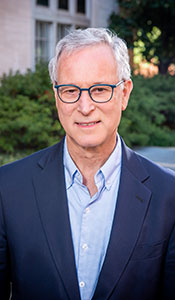These are times of great hope in the NF community, and times of exciting growth in Birmingham and at the UAB NF Program. In the larger world of NF research, the pipeline of new treatments continues to expand, from basic science laboratories to animal models to clinical trials. Here, though, I'd like to focus on what is happening in Birmingham, and thereby explain the rationale for launching this new website and blog.
We timed the launch of this website to coincide with the first Birmingham walk to raise funds for the Children's Tumor Foundation (CTF), the major source of patient advocacy and research support for all forms of NF in both adults and children. I participate in events for CTF around the country and had always hoped to be able to see something big happen in my home town. Now, thanks to the dedication and huge efforts of a group of families led by Philip and Renie Moss (and check out the video on our site featuring the Moss family!), Wes and Stephanie Waldrop, James and Ginny Rediker, and Bill and Nikki Robbins, something very big is about to happen here. I'd like to think that Birmingham is on the map for NF research and clinical care; now it will be as well for fundraising by our patients, their families, and their friends.
Our NF Clinic is one of few anywhere that provides care for patients with all forms of NF at any age. There are over a thousand people with NF in Alabama, and I suspect that either Dr. Lane Rutledge or I have seen a good proportion of them in our clinic over the years. What's more, almost every week patients are seen who traveled long distances – across the state, from neighboring states, across the country, and even from other continents, to be seen. One of my goals for the clinic this year is to increase the involvement of patients in their own care, using educational tools and the web portal for our electronic health record to help make this happen. I will report on progress in the coming months.
The UAB Medical Genomics Lab, led by Dr. Ludwine Messiaen, is recognized around the world as the leader in genetic testing for all forms of NF. The lab has characterized thousands of mutations, and now has been awarded a contract from CTF to search for genotype-phenotype correlations: Can we identify mutations that predict specific NF complications – or the lack of complications, for that matter? This has the potential to improve care and also to shed light on how some of these complications come about. Also this year, the Medical Genomics Lab discovered a new genetic cause of Schwannomatosis – mutation in a gene designated LZTR1. This work was published recently in Nature Genetics, the most prestigious scientific journal in genetics, and opens the way towards diagnostic testing and new approaches to study of the biology of Schwannomatosis.
During the past several years, thanks in large part to generous contributions from major supporters of our program, we have vastly expanded our research aimed at developing new treatments for NF. Given our experience in NF mutation testing, we have deep knowledge of the various types of mutations that occur in the NF genes. Our goal now is to develop treatments that will restore function to the mutated gene or its protein product. Similar work has been successful in cystic fibrosis, where a new drug was developed that targets a particular mutation, which is now approved for clinical use by the FDA. We are developing new animal models and patient-derived cell cultures for this work, and recently some of the models have produced tumors that will allow us to do drug testing. I will provide more details about this exciting work in a future blog.
There is a lot more to talk about – like our role as coordinating center for the Department of Defense funded NF Clinical Trials Consortium, which launched a trial for patients with NF2 earlier this year and soon will launch two more for plexiform neurofibromas. This, too, I'll discuss in the near future. For now, I hope you will share our excitement – for the prospects for NF treatment, for the growth of our clinical and research programs, and most of all for the inspiring energy of patients and families in our community. I hope that you will find this new and expanded website helpful – we welcome your feedback, your involvement, and your support!
